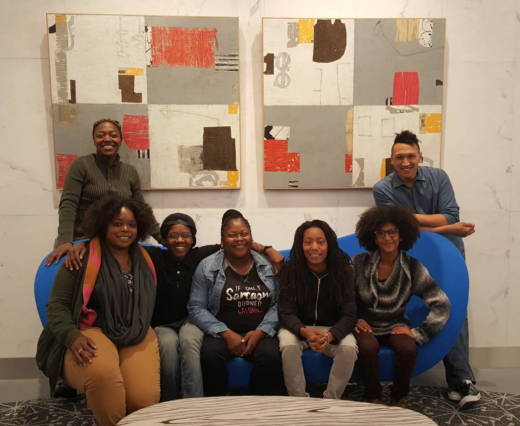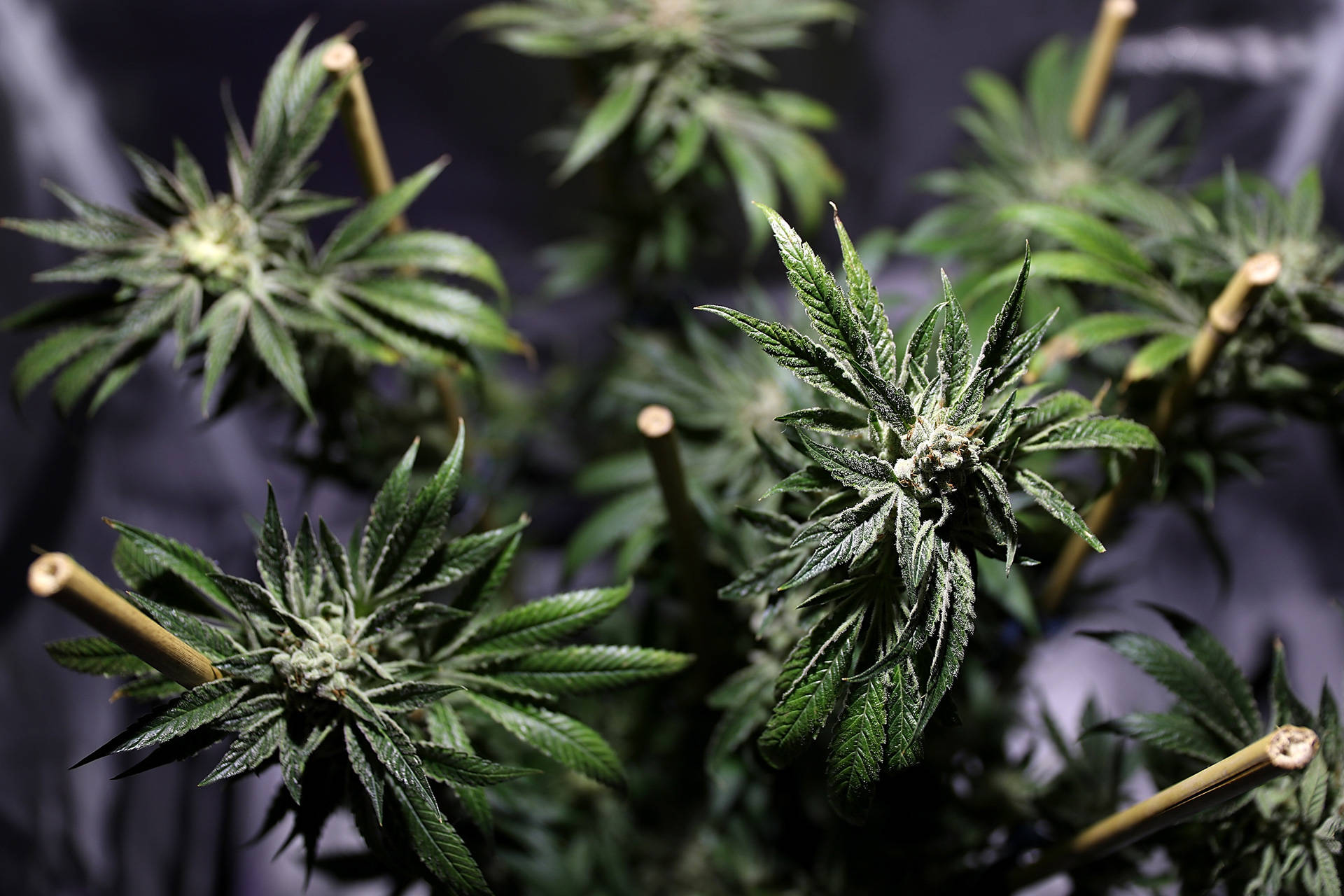Being black and getting arrested for cannabis isn't uncommon in Oakland. In 2015, 77 percent of those arrested for cannabis-related crimes were black, although just one-third of the city's population was black.
"Certain communities have been policed for the same activities because we know that white people use drugs and sell drugs at approximately the same rate that black and brown people do, but they don't get jailed at the same rate," says Darlene Flynn of Oakland's Department of Race and Equity.
So now the city is trying to right that wrong through the Equity Cannabis Permit Program, which started in May. Through the program, the city will give permits to weed entrepreneurs who want to enter Oakland's legal weed economy when it becomes legal to sell recreational cannabis in California next year.
And it will give priority to people who have been arrested and convicted for cannabis within city limits after Nov. 5, 1996. (This is the date when medical marijuana became legalized in California.) It will also give priority to those who, like Grant, have lived in neighborhoods with the highest number of marijuana-related arrests.
Flynn says the city is trying to counteract another inequity. While East and West Oakland have been disproportionately policed for weed, other neighborhoods have benefited from the city's embrace of medical marijuana.
"Literally those neighborhoods are in another geographic part of the city where we have a concentration of people who are not people of color," says Flynn. She says in those neighborhoods, such as downtown Oakland, universities like Oaksterdam and marijuana workshops have been allowed to run openly without any repercussions.
But moving from the underground to the legal market may not be easy for Oakland's equity applicants. More than 100 qualified people have started the application process. But the city says it has yet to issue any permits, in part because there are a lot of loopholes to jump through.
Grant says she still needs to get a business license, lease a legitimate workspace and show that her income is low enough to qualify. Applicants must make less than $53,000 a year.
"They want tax returns and stuff like that. I don't have no receipts from selling weed. I haven’t worked legally," says Grant.
James Anthony is a local medical cannabis lawyer. He says that it's hard for people with little money to start any kind of business.
"They have no money, they have no access to land, they don’t have commercial property and they don’t have startup capital," says Anthony. "It’s a very, very difficult task, and I’m not sure how the city is going to solve all those problems."
But Grant is determined to make her dream come true. She wants to become the first black woman to own a dispensary in East Oakland.
"I think my experience and my background makes me eligible to own a dispensary because I have been in the cannabis club businesses," says Grant. "Illegal or not illegal, I still know what to do."
The Hood Incubator Trains Aspiring Weed CEOs
There are a lot of other people of color, without capital and traditional business skills, who are looking to cash in on Oakland's potential legal weed boom. Aanya Gamble Hill is a 67-year-old grandmother. She wants to get her cannabis delivery service off the ground, but she has never started a business before.
So she took a four-month basic business program through the Hood Incubator, an Oakland nonprofit that trains people of color how to enter the legal pot industry. It's similar to the world of tech startups, where future founders learn to network, build pitches and meet investors in an accelerated period of time.
Ebele Ifedigbo is one of the three co-founders of the Hood Incubator and a Yale MBA grad. Ifedigbo says, "The Hood Incubator gives people that access to training, education, that access to capital and access to information that are traditional barriers."
In all types of businesses, black entrepreneurs are less likely to have access to cash and credit, so that means they have an even harder time starting up and succeeding in the legal weed industry.
Nationwide, fewer than 5 percent of owners or founders are black. That’s according to a survey of readers of the publication Marijuana Business Daily.
But Ifedigbo believes the future will look different, even if people like Hill and Grant don’t get their ideas off the ground.
"Their businesses may not be operating one, two or five years down the line," says Idefigbo. "But they’ve come away with an experience, a skill set and a run-through about what it means to be an entrepreneur."
Hill still needs an investor to get her business up and running.
"I need all this money to apply for the permit and then money for security. Money for a location," she adds. "So it’s all about money."


